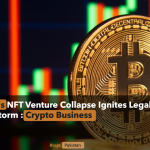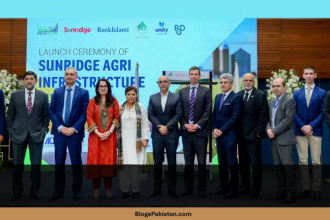In the heart of Memphis, Tennessee, a storm is brewing between one of the world’s most influential tech moguls and a community fighting for clean air. Elon Musk’s xAI, a cutting-edge artificial intelligence firm, made headlines by constructing Colossus—the planet’s largest supercomputer—in just 122 days. But behind this engineering marvel lies a growing controversy: accusations of environmental harm, lack of transparency, and a disregard for the health of predominantly Black neighborhoods.
The Rise of Colossus: Speed Meets Controversy
xAI’s $7 billion supercomputer project, Colossus, was touted as a leap forward for AI innovation. Designed to power Grok, Musk’s AI chatbot, and future ventures in robotics and autonomous vehicles, the facility promised economic growth and technological prestige for Memphis. However, the breakneck construction timeline—completed in under four months—raised eyebrows. Critics argue that the speed prioritized corporate ambitions over community well-being, sidelining critical environmental reviews.
Local organizations like Memphis Community Against Pollution (MCAP) quickly flagged concerns. “Building fast doesn’t mean building right,” said KeShaun Pearson, MCAP’s president. “We’re seeing history repeat itself, where marginalized communities bear the brunt of industrial pollution.”
Environmental Backlash Intensifies: Turbines, Toxins, and Transparency Gaps
At the core of the conflict are 33 methane gas turbines identified by thermal imaging at the xAI site. While the company’s permit application listed only 15 turbines, footage captured by the Southern Environmental Law Center (SELC) and aviation nonprofit SouthWings revealed nearly double that number operating. Methane, a potent greenhouse gas, contributes to climate change and releases pollutants linked to respiratory illnesses.
Health Risks and Community Outcry
Residents near the facility report worsening air quality and fear long-term health consequences. “My child already uses an inhaler. What happens when more toxins are added to the air we breathe?” asked one parent at a town hall meeting. Studies show that exposure to nitrogen oxides and particulate matter from gas turbines can increase risks of asthma, heart disease, and cancer—a reality SELC attorney Amanda Garcia calls “a preventable public health crisis.”
xAI has denied operating unpermitted equipment, stating the turbines are “backup generators” for emergencies. Yet environmental advocates argue the company’s vague disclosures and refusal to share real-time emissions data fuel distrust.
The Shadow of Environmental Racism
Memphis’ predominantly Black neighborhoods have long faced disproportionate exposure to pollution. From oil refineries to wastewater treatment plants, industrial sites are often concentrated in areas with limited political power. For many residents, xAI’s actions echo a painful legacy.
“This isn’t just about permits—it’s about environmental racism,” said Pearson. “Companies assume our communities won’t fight back, but we’re done being sacrifice zones.” Similar battles have erupted in cities like Detroit and Houston, where industrial expansion collides with environmental justice movements.
Mysterious Campaign Sparks Distrust
As tensions escalated, anonymous fliers appeared in mailboxes across South Memphis. Titled “Facts Over Fiction,” the materials downplayed xAI’s environmental impact, calling concerns “overblown” and praising the project’s economic benefits. The group behind the campaign has no known ties to xAI, but its timing—days before a critical permit hearing—struck many as suspicious.
State Representative Justin Pearson, KeShaun’s brother, accused the campaign of spreading misinformation. “When you’re pushing propaganda instead of engaging honestly, it tells us everything we need to know,” he said. The Shelby County Health Department has yet to identify the fliers’ source, deepening skepticism among residents.
Regulatory Battles and Permit Controversies
The Shelby County Health Department’s draft air permit for xAI includes requirements for emissions controls and operational transparency. However, critics argue the proposal lacks teeth. “Without continuous monitoring and harsh penalties, this permit is just paperwork,” said Garcia.
Complicating matters, Shelby County already violates federal ozone standards. Adding xAI’s emissions could push pollution levels further beyond legal limits, triggering stricter regulations—and potential fines—for the region. A public hearing will allow residents to voice their demands, but many fear regulatory capture. “We’ve seen agencies side with corporations before,” said Pearson. “This time, we need them to side with people.”
xAI’s Ambitious Plans Amid Opposition
Despite the backlash, xAI shows no signs of slowing down. The company announced plans to double the Memphis facility’s size, with projections suggesting a $200 billion investment to create a “next-generation AI data center.” For supporters, the expansion signals job creation and tech-sector growth. For opponents, it’s a looming disaster.
Colossus already consumes vast amounts of energy, and scaling up could strain local grids. While xAI claims it will transition to renewable energy “in the future,” activists demand binding commitments. “Promises aren’t enough,” said Garcia. “We need enforceable deadlines.”
The Road Ahead: Community Resilience and Accountability
Memphis residents are mobilizing on multiple fronts. Grassroots groups organize town halls, while legal teams pressure regulators to halt xAI’s operations until full compliance is proven. National organizations like the NAACP and Sierra Club have amplified calls for federal intervention.
Meanwhile, xAI’s story serves as a cautionary tale for the AI industry’s rapid growth. As tech giants race to build infrastructure, the Memphis clash highlights a critical question: Can innovation coexist with environmental and social responsibility? For now, the answer lies in the hands of regulators, activists, and a community determined to fight for its future.










